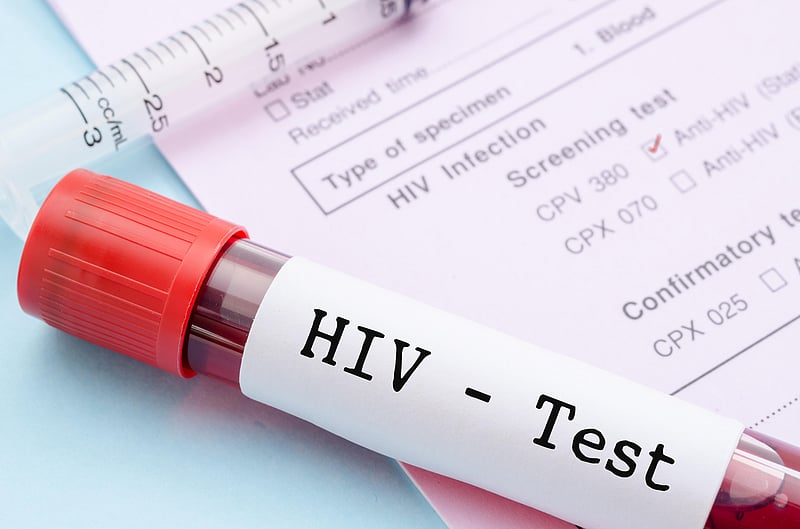Get Healthy!

- Alan Mozes
- Posted May 19, 2023
New Clues to Why Some People Suppress HIV Without Drugs
Some HIV patients are naturally able to keep the virus fully in check without any medicinal help, a phenomenon that has intrigued scientists for decades.
New research appears to identify at least one reason why: an abnormally powerful version of an infection-fighting white blood cell called CD8+ T cell.
CD8+ T cell's are a type of T cell, a normal feature in everyone's immune system. T cells typically amass in the lymph nodes of an HIV-infected patient.
But among "spontaneous controllers"-- those with the rare ability to automatically corral HIV and prevent it from triggering illness -- investigators found that CD8+ T cells appear significantly more adept at identifying and stopping HIV.
"About one in 300 people are able to control HIV without the need for medications,"noted study author Dr. Bruce Walker, director of the Ragon Institute of MGH, MIT and Harvard, an immune system research center in Cambridge, Mass.
It appears "that it is the CD8+ T cell response that achieves this control,"explained Walker, who is also an investigator with the Howard Hughes Medical Institute and a professor of medicine at Harvard Medical School.
To gain insight, the study team analyzed blood samples and T-cells from seven healthy patients not infected with the AIDs-causing virus; 19 spontaneous controllers; and 17 typical HIV patients whose viral load was being controlled with antiretroviral therapy (ART).
ART has dramatically changed the HIV landscape, suppressing viral activity and affording patients a chance at an almost normal life expectancy. However, this is not without side effects.
The analysis, said Walker, revealed that among spontaneous controllers, CD8+ T cells "are abundant and highly functional."
Among HIV patients on ART, "they are less numerous and less functional," he said.
The bottom line, he added, is that for the spontaneous controllers, these souped-up T cells "are keeping HIV at bay, preventing it from doing damage."
Looking ahead, Walker said scientists would want to somehow harness the special anti-HIV power exerted by such T cells in order to "induce the kind of immunity we see in the spontaneous controllers in people with progressive disease."
But that's an elusive goal, cautioned Dr. Michael Horberg, director of HIV/AIDS and STD at Kaiser Permanente and Care Management Institute in Rockville, Md.
"In my nearly 35 years of clinical HIV care, I have only seen a few patients who meet criteria,"meaning HIV-positive but with a viral status "consistent with an individual without HIV exposure,"he noted.
"And it's always a little disbelieving at first,"said Horberg, who was not a part of Walker's study team. "When a physician with expertise in HIV determines one of their patients qualifies as such, we often search for research programs trying to amass a cohort of such patients for further study."
The goal has always been to learn more about anti-HIV immunity, and potentially use that information to develop therapies to prevent or control the virus. "But as clinical care and population statistics show, it is still an elusive goal,"Horberg said.
Still, it's an "absolutely important field of research,"said Modupe Coker, an assistant professor in the oral biology department and an adjunct assistant professor with the school of public health at Rutgers State University of New Jersey.
Coker's research has focused on the relationship between HIV and oral health. "This study, among others, certainly suggests that we should study this further, and extend its applications to other existing and incoming infectious diseases/pandemics," she said.
The report was published in the May 19 issue of Science Immunology.
More information
There's more on HIV at the U.S. Centers for Disease Control and Prevention.
SOURCES: Bruce D. Walker, MD, director, Ragon Institute of Mass General, MIT and Harvard, Cambridge, Mass., and investigator, Howard Hughes Medical Institute, and professor of medicine, Harvard Medical School; Michael Horberg, MD, MAS, director, HIV/AIDS and STD, Kaiser Permanente and Care Management Institute, Rockville, Md.; Modupe O. Coker, BDS, MPH, PhD, assistant professor, department of oral biology, and adjunct assistant professor, school of public health, department of epidemiology and biostatistics, Rutgers State University of New Jersey; Science Immunology, May 19, 2023







